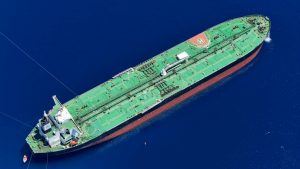Israel launches a massive airstrike campaign on Iran’s nuclear and military infrastructure, backed by U.S. weapons, funding, and President Donald Trump’s explicit support, sparking fears of a full-scale Middle East war. The operation, targeting Tehran’s nuclear program, kills senior Iranian commanders, drives oil prices higher, and triggers a global equity sell-off. Financiers brace for volatility as the conflict threatens energy supplies and stokes inflation.
U.S.-Backed Assault Targets Iran’s Nuclear Ambitions
Israel’s “Operation Rising Lion” deployed over 200 warplanes, striking Iran’s Natanz nuclear facility, missile bases, and military command centers in Tehran and western Iran. The attack kills Islamic Revolutionary Guard Corps commander Hossein Salami and nuclear scientist Fereydoon Abbasi, with Iran reporting 78 deaths and 320 injuries. Israeli Prime Minister Benjamin Netanyahu declares the strikes a “preemptive necessity” to halt Iran’s nuclear program, which he claims can produce “multiple warheads” (The New York Times).
President Trump, in a Reuters interview, acknowledges prior knowledge, stating:
“We know the plan and back Israel’s right to act.”
U.S.-supplied F-35I jets, precision-guided munitions, and mid-air refueling—supported by $3.8 billion in annual military aid—power the operation’s scope. Trump’s Truth Social post demands Iran “negotiate or face annihilation,” signaling unwavering support. Secretary of State Marco Rubio labels the strikes “Israel’s call” but confirms U.S. missile defense aid, including THAAD deployments.
The assault derails U.S.-Iran nuclear talks scheduled for today in Oman, with Iran closing its airspace. The International Atomic Energy Agency’s reports of Iran’s near-weapons-grade uranium enrichment drive Israel’s urgency, with Netanyahu dismissing Trump’s diplomatic efforts. The Pentagon repositions the USS Carl Vinson to the Arabian Sea, officially for Houthi operations but signaling deterrence to Iran. Iran’s Supreme Leader Ayatollah Ali Khamenei vows a “crushing response,” raising risks of attacks on U.S. regional bases.
Analysts warn of a broader conflict. “Israel’s U.S.-backed strike risks a multi-front war,” says Rosemary Kelanic, director of the Middle East program at Defense Priorities, in a Washington Post interview. Iran’s proxies, including Hezbollah, pose threats to Israel, while Gulf states and U.S. forces face exposure. The UN Security Council calls for restraint, but diplomatic options appear scarce.
Markets Reel: Oil Spikes, Stocks Plunge
Financial markets react sharply. Brent crude surges 7% to $74.23 a barrel, with intraday spikes above 13%, and U.S. crude climbs 7.62% to $72.98, driven by fears of a Strait of Hormuz blockade, which channels 20% of global oil. “A sustained closure can cut supply by a fifth, pushing Brent toward $90,” says Helima Croft, head of global commodity strategy at RBC Capital Markets, in a CNBC interview. Goldman Sachs warns of $100 oil in a worst-case scenario.
The Dow Jones Industrial Average dropped 1.79% to 42,197.79, its steepest fall since May. The S&P 500 declined 1.13% to 5,976.97, and the Nasdaq Composite fell 1.30% to 19,406.83.. Safe-haven assets rallied: gold reached $3,416 an ounce, the U.S. dollar index rose 0.5% to 98.16, and 10-year Treasury yields climbed to 4.413%.
Sector impacts are stark. Energy stocks rise, with Exxon Mobil gaining 2.2% and Diamondback Energy up 3.7%. Defense firms, including Lockheed Martin, advance 3.1% on expectations of increased military spending. Airlines and travel stocks slump on fuel cost concerns, with Delta Air Lines down 3.8%, United Airlines off 4.4%, and Expedia dropping 2%.
Israel’s U.S.-supported strike on Iran signals a volatile path. A wider war can choke the Strait of Hormuz, driving oil to $100-$130 a barrel and undermining global growth.








Be First to Comment